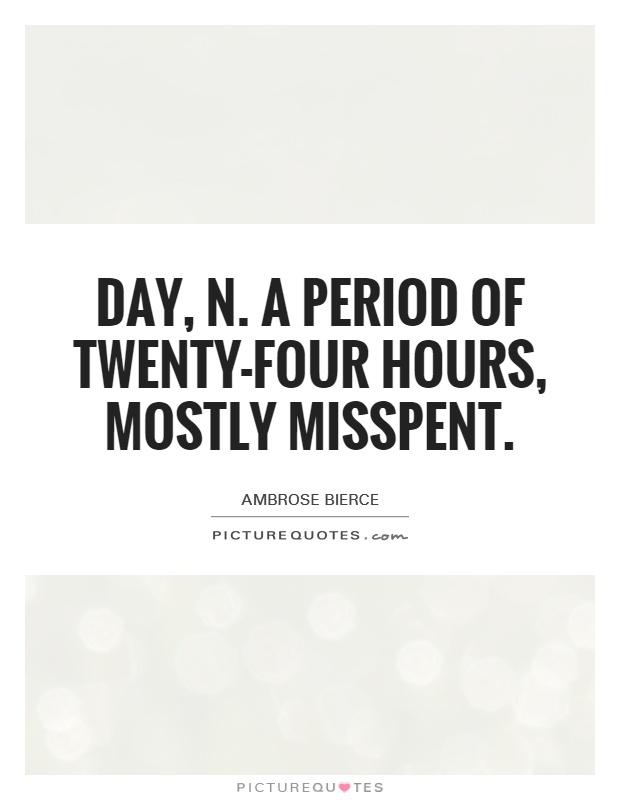Day, n. A period of twenty-four hours, mostly misspent

Day, n. A period of twenty-four hours, mostly misspent
Ambrose Bierce, a renowned American writer and satirist, was known for his sharp wit and cynical view of the world. In his famous work, "The Devil's Dictionary," Bierce defined a day as "a period of twenty-four hours, mostly misspent." This definition encapsulates Bierce's dark and pessimistic outlook on life, as he believed that most people waste their time and opportunities during the course of a day.Bierce's definition of a day as mostly misspent reflects his belief that human beings are inherently flawed and prone to making poor choices. He saw the passage of time as a precious commodity that should be used wisely, yet he observed that many people squander their days on trivial pursuits or meaningless activities. Bierce's cynicism is evident in his portrayal of the day as a period of time that is often wasted on frivolous endeavors, rather than being used productively.
Bierce's definition of a day also highlights his belief in the fleeting nature of time and the inevitability of death. He saw each day as a finite resource that should be cherished and utilized to its fullest potential. By describing a day as mostly misspent, Bierce emphasizes the importance of making the most of every moment and not taking time for granted.
Furthermore, Bierce's definition of a day as mostly misspent can be seen as a commentary on the human condition. He believed that people are prone to making mistakes and poor decisions, which can lead to wasted opportunities and regrets. Bierce's cynical view of the world is reflected in his definition of a day, as he suggests that most people fail to make the most of their time on earth.












 Friendship Quotes
Friendship Quotes Love Quotes
Love Quotes Life Quotes
Life Quotes Funny Quotes
Funny Quotes Motivational Quotes
Motivational Quotes Inspirational Quotes
Inspirational Quotes